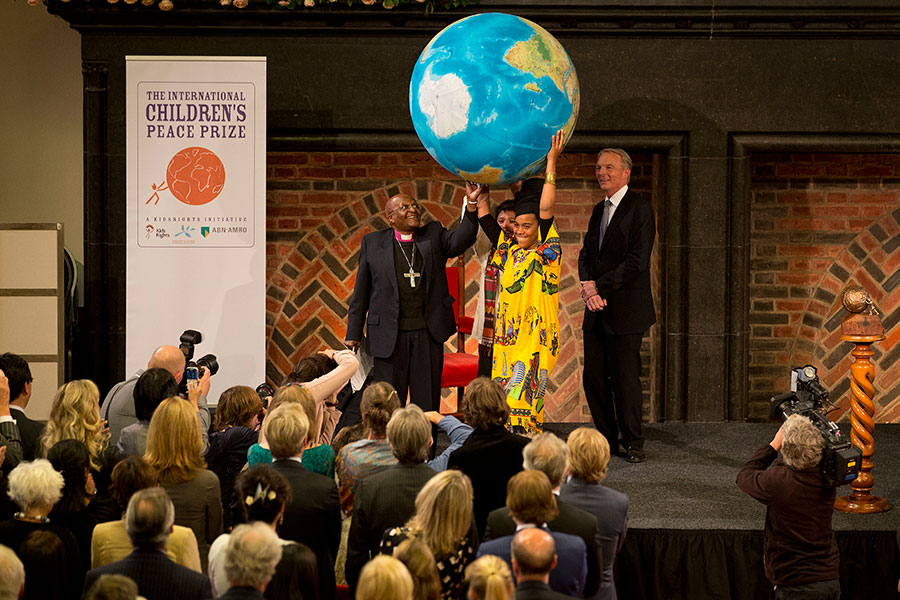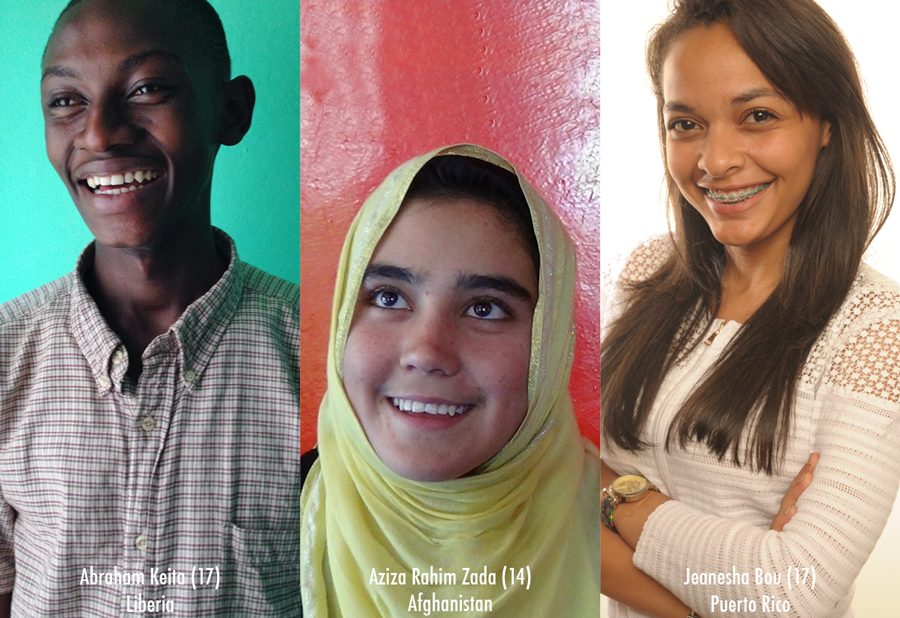The International Children’s Peace Prize is awarded to a child who strives courageously to establish children’s rights. The winner will be announced during the award ceremony on Monday 9 November in the Hague, the Netherlands. Archbishop Desmond Tutu is proud to announce that the final three nominees for the International Children’s Peace Prize 2015 are;
Abraham Keita (17 years old, Liberia) is nominated for his struggle for justice for children who are victims of violence. He became a member of the Liberian Children’s Parliament when he was only nine years old and has ever since undertaken action when the rights of children were being violated. Keita organised several peaceful marches and wrote petitions to plead with the Liberian government to respect the rights of children. In his pursuit of justice for children, Keita has demonstrated his ability to identify children’s rights’ violations, take action on the accountability of the perpetrators, and above all, to do so in a peaceful and powerful manner.
Aziza Rahim Zada (14 years old, Afghanistan) is nominated for inspiring refugee children, and girls especially, to voice their opinions. She stands up for children living in appalling conditions in Afghan refugee camps and has encouraged hundreds of other children to talk about their problems and claim their rights. In her own calm and convincing way she is able to build a bridge between a conservative society and a society which allows more progressive and effective approaches to girls’ and children’s rights. She organizes activities for children to discuss and document their problems, raises awareness and engages with parliament members and other opinion makers.
Jeanesha Bou (17 years old, Puerto Rico) is nominated for her struggle against human trafficking. Her ultimate goal is to eradicate modern-day slavery, a crime against humanity to which many people who are trafficked fall victim. Her message and advocacy have turned Jeanesha into an example for those dedicated to eliminating the human trafficking of children and youths. Jeanesha continues to speak out and expand her activities to reach more children.
In his message today, Tutu said that he has high hopes for these brave and young nominees: “The International Children’s Peace Prize gives a voice to the voiceless and shows that children can change the world.”
About the International Children’s Peace Prize
The International Children’s Peace Prize is awarded annually to a child who strives courageously to establish children’s rights. Each year’s winner has in his or her own way demonstrated tremendous commitment to eliminating the problems that children face. Every year the message of the new young winner has enormous impact and demonstrates to millions of people globally that change is possible.
The International Children’s Peace Prize is an initiative of Marc Dullaert, founder of the KidsRights Foundation.The prize was launched in 2005 during the Nobel Peace Laureates’ Summit in Rome, chaired by Mikhail Gorbachev. The expert committee of the prize each year receives nominations from countries from all over the world. Very remarkable but often unknown brave children have been discovered through the annual nomination process.
This year, the International Children’s Peace Prize will be awarded for the 11th consecutive year. Ten brave and inspiring children have so far received the prize for their efforts in promoting children’s rights, including Nkosi Johnson who fought for the rights of children with aids and Malala Yousafzai, who won the International Children’s Peace Prize in 2013 and the Nobel Peace Prize in 2014.
This year’s prize had a total of 77 submissions, comprising 38 boys and 39 girls from 39 countries.
Archbishop Desmond Tutu is a patron of the International Children’s Peace Prize and has presented the prize three times. Each year the prize is presented by a Nobel Peace Laureate.
This year the prize will be presented by Nobel Peace Laureate Muhammad Yunus. The winner receives the statuette ‘Nkosi’, which portrays a child setting the world in motion, as well as a study grant and a world-wide platform to promote his or her ideals and causes for the benefit of children’s rights. Furthermore, KidsRights invests a project fund of €100,000 in projects in the winner’s home country which are closely connected to his or her area of work.





































